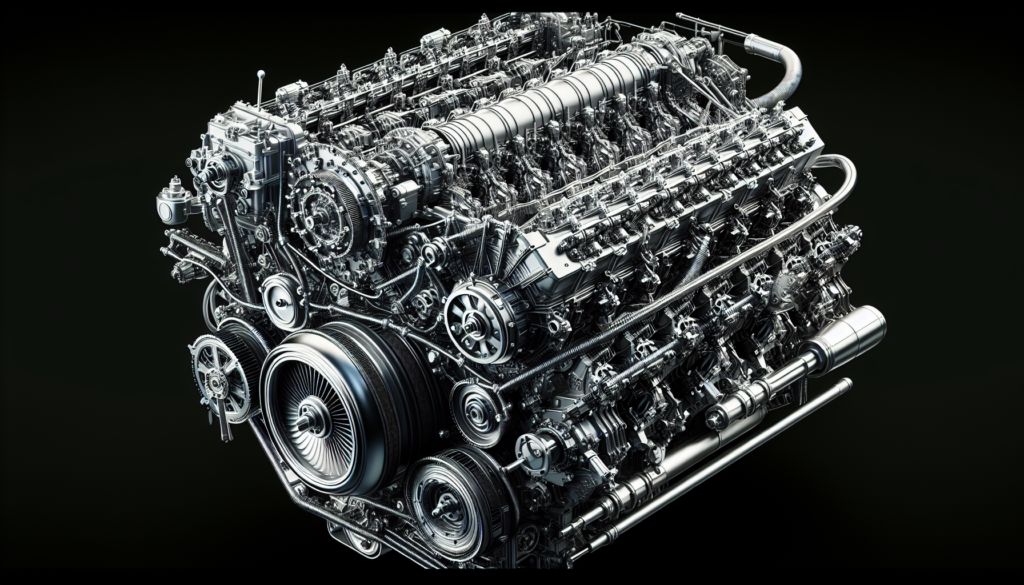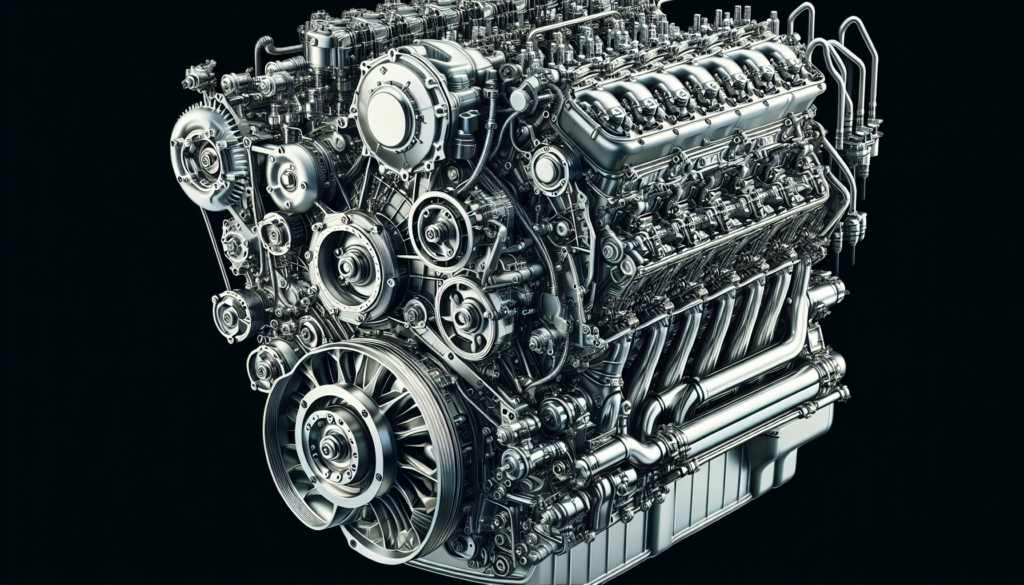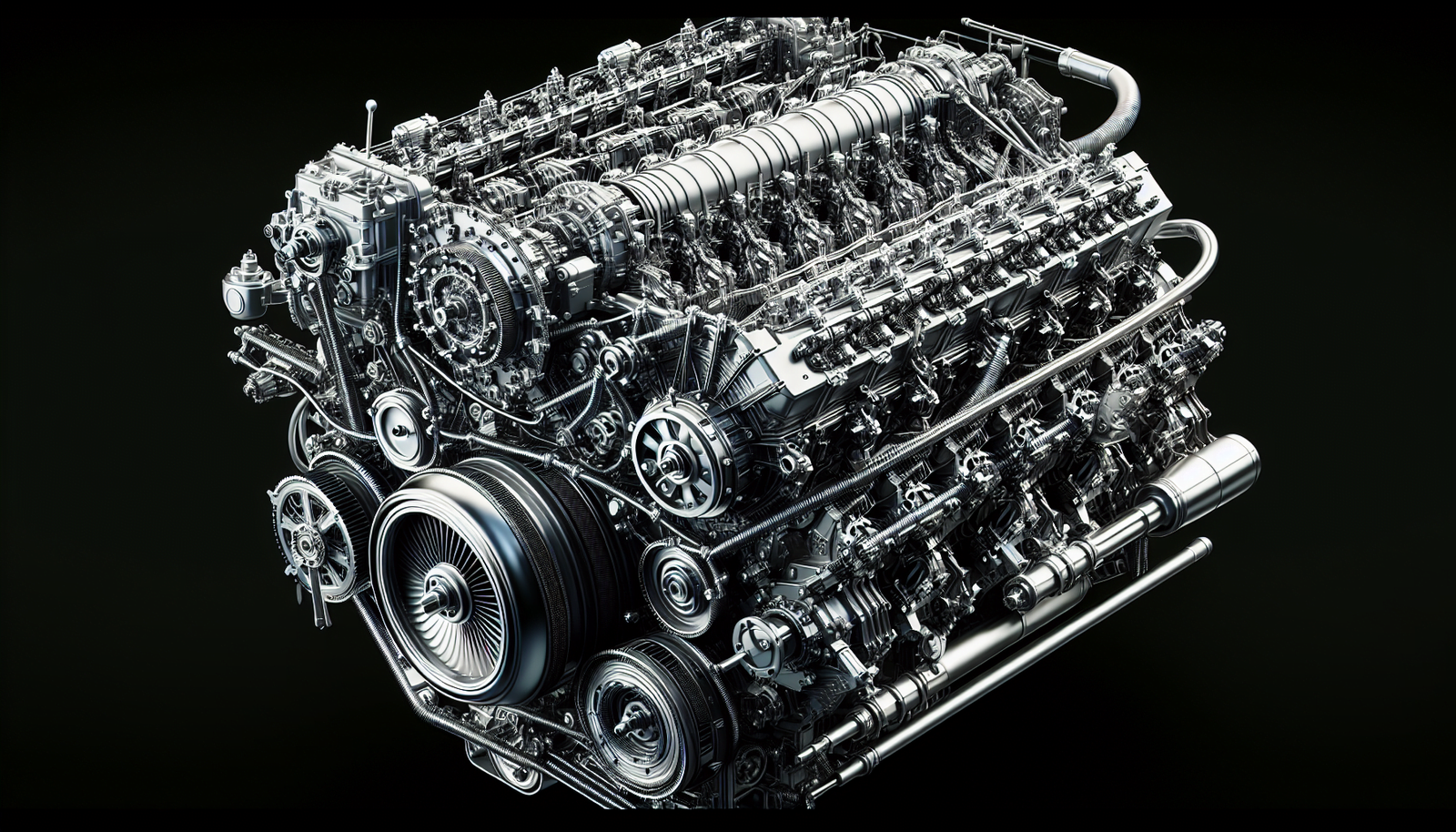Facing trouble with boat engine maintenance? Don’t worry! This article is your one-stop spot for practical answers to common boat engine maintenance FAQs. Everything from common troubleshooting issues to routine maintenance that will keep your boat engine running smooth for years. Navigate through the sea of information and discover how to keep your boat’s powerhouse in optimal working condition. While it might seem like a mammoth task, but once you get a hang of it, it’s pretty straightforward. Count on this guide to steer you in the right direction.

Understanding Boat Engine Types
Before getting down to the nitty-gritty of boat engine maintenance, you need to first understand the different types of boat engines. Much like cars, boat engines come in various models, each with its own set of operating principles, maintenance needs, and unique characteristics.
Gas vs Diesel Engines
Gas and diesel engines are two commonly used boat engines. Gas engines are usually lighter and more compact, which makes them suitable for smaller boats. They also have a higher RPM (Revolutions Per Minute) meaning they tend to be faster. However, they also consume more fuel and have a shorter lifespan compared to their diesel counterparts.
Diesel engines are more reliable and durable, consuming less fuel, which makes them ideal for longer journeys. They produce more torque, allowing for more powerful boats. However, they can be louder and produce more vibration than gas engines.
Outboard vs Inboard Engines
Next up, we have outboard and inboard engines. Outboard engines are mounted on the outside of the boat and tend to be easier to maintain due to their accessibility. These motors are typically more fuel-efficient, have greater horsepower and are perfect for smaller boats.
On the other hand, inboard engines are built into the boat’s hull, making them harder to access for maintenance. They tend to be used in larger watercraft as they are better at maintaining high speeds over a longer period.
Two Stroke vs Four Stroke Engines
Lastly, we have the topic of two-stroke versus four-stroke engines. Two-stroke engines are lighter, simple in design, and offer more power. However, they are also louder, less efficient, and produce more emissions compared to four-strokes.
Four-stroke engines, on the other hand, are quieter, more fuel-efficient and generally more environmentally friendly. However, they tend to be bigger, heavier, and could offer less power than a two-stroke engine of the same size.
Essential Routine Maintenance Tasks
Regular maintenance is key to ensuring your boat engine runs smoothly. Below, we’ll look at some of the essential routines you should get into.
Replacing the Oil
One of the first things you should do to maintain your boat engine is to regularly replace the oil. Much like a car engine, a boat engine relies on oil for lubrication and to keep parts running smoothly. Regular oil changes can help prevent wear and tear and maintain engine performance.
Inspecting the Propeller
The propeller is a critical component of your boat’s engine. Regularly inspecting it can help to prevent potential problems down the line. Look out for nicks, dents, or any signs of wear and tear that could affect your boat’s performance and potentially cause more significant issues.
Checking and Replacing Fuel Filters
Fuel filters are another crucial part of your boat’s engine. Their primary function is to keep dirt, dust and other contaminants out of your fuel system. Regularly checking and replacing them can help to prevent clogging, poor engine performance, and other problems.
Recognizing Common Engine Problems
Even with regular maintenance, engine problems can still arise. Here are some common issues that you might face and how to identify them.
Engine Won’t Start
One of the most common problems is the engine refusing to start. There can be several reasons for this, such as dead battery, loose or corroded connections, or problems with the fuel system.
Engine Overheating
Another common issue is engine overheating. This may be due to a problem with the cooling system, low oil levels, or a faulty thermostat.
Loss of Engine Power
Lastly, a noticeable reduction in engine power could signify a range of issues. It might be as simple as a blocked air or fuel filter, but it could also be a sign of more severe problems like internal engine damage.
Dealing with Engine Wear and Tear
Whether it’s a result of frequent use or the aging process, engines inevitably experience wear and tear over time. Being able to identify and manage this effectively can make all the difference in your engine’s longevity and functionality.
Identifying Wear and Tear
Common signs of wear and tear include reduced engine performance, increased fuel consumption, strange noises, or leaks. Regular inspections and routine maintenance checks can help identify these issues before they become more significant.
Repairing vs Replacing Parts
When it comes to dealing with worn-out parts, you typically have two options: repair or replace. It largely depends on the severity of the damage and the part in question. Some parts can straightforwardly be repaired, while others warrant a replacement to ensure safety and optimal engine performance.
Preventing Rapid Wear and Tear
While some wear and tear is inevitable, steps can be taken to slow down the process. Regular maintenance, using high-quality parts and oil, and operating your boat responsibly can prevent rapid wear and tear.

Winterizing Your Boat Engine
Much like your house needs prepping for winter, so does your boat engine. Winterizing your boat engine is crucial, especially if you live in a colder region where temperatures drop significantly.
Why Winterizing is Essential
Winterizing helps protect your boat’s engine from the damaging effects of freezing temperatures. Without it, you risk serious outcomes like cracked engine blocks or corrosion which result from the freeze-thaw cycle, moisture, and lack of use.
Steps to Winterize Your Engine
The process of winterizing typically involves performing a thorough cleaning, draining any water from the engine, adding a protective layer of oil to prevent rust, and finally storing the engine properly.
Engine Complications due to Inadequate Winterizing
Failure to properly winterize your boat engine can lead to numerous complications, including cracking, seized components, or even engine failure come springtime.
Maintaining Fuel System and Fuel Quality
A clean and well-maintained fuel system is key to your boat engine’s optimal performance. Below is how you can ensure your fuel system stays in top condition.
Keeping Fuel Fresh
Stale fuel can lead to complications ranging from poor engine performance to damaging the entire fuel system. Regularly running your boat and keeping the fuel system filled can help keep fuel fresh and prevent issues.
Dealing with Water in Your Fuel
Water may seep into your fuel system and cause serious problems. Regular inspections and use of water separators and fuel additives can help protect against this.
Regular Inspection and Cleaning of Fuel System
Routine inspections and cleaning are crucial to maintaining a high-performing, problem-free fuel system. Address any leaks or damage promptly to preserve your fuel and engine’s efficiency.
Cooling System Maintenance
Your boat engine’s cooling system plays an important role in preventing overheating and ensuring optimal performance.
Raw Water Cooling System
A raw water cooling system uses water from outside the boat to cool the engine. Although straightforward, this system unfortunately exposes the engine to potential contaminants and corrosion.
Closed Cooling System
Unlike the raw water system, a closed cooling system uses coolant to cool the engine. This system reduces the risk of corrosion, but it’s more complex, and any coolant leak can result in overheating.
Troubleshooting Cooling System Complications
Common cooling system complications include leaks, clogs, or a faulty water pump. Regular checks can help identify and remedy these potential problems promptly.
Electrical System Maintenance
Maintaining the electrical system is just as important as the engine or the fuel system. An improperly maintained electrical system can lead to numerous issues, including problems starting the engine.
Keeping Batteries in Optimum Condition
Making sure your batteries are in good condition is crucial. Keep them clean, ensure they’re adequately charged, and always replace old and worn-out batteries.
Inspecting and Maintaining Wiring
Regularly inspecting and maintaining the wiring of your boat can help prevent electrical faults. Look out for cracks, wear, and tear, and always address any issues immediately.
Dealing with Corrosion in Electrical Components
Corrosion can cause major damages if not dealt with promptly. Regularly cleaning and applying protective coatings can help prevent corrosion and prolong the life of your electrical components.
Understanding the Implication of Engine Troubleshooting Codes
Just like cars, modern boat engines use a computer to monitor performance and detect problems. Recognizing these codes and understanding their implications can help you quickly address the problems.
Interpreting Common Codes
Each code implies a specific issue. Be sure to refer to your engine manual to understand what each code means, or consult a professional.
Addressing Detected Engine Faults
Upon detecting the problem, some issues can be fixed by resetting the system, while others require specific parts to be repaired or replaced.
When to Consult a Professional
While you can address minor issues, it’s always wise to consult a professional when faced with complex engine faults or when you’re unsure about the troubleshooting codes.
Importance of Preventive Boat Engine Maintenance
Maintaining your boat engine isn’t just about responding to problems—it’s about preventing them from occurring in the first place.
Increasing Engine Lifespan
Regular preventive maintenance can help extend your boat engine’s lifespan, helping you get the most out of your investment.
Preventing Costly Repairs
Preventive maintenance can help identify potential issues before they turn into major, costly repairs.
Improving Fuel Efficiency and Marine Safety
A well-maintained engine runs more efficiently, saving you fuel costs. Additionally, regular maintenance ensures that your boat is always in top condition, significantly improving safety during your marine adventures.
By understanding your boat engine type and undertaking regular preventive maintenance, you can prevent common engine problems, extend your boat’s lifespan, and enhance your overall marine experience. So, roll up your sleeves and get started on the journey to excellent boat engine health!

